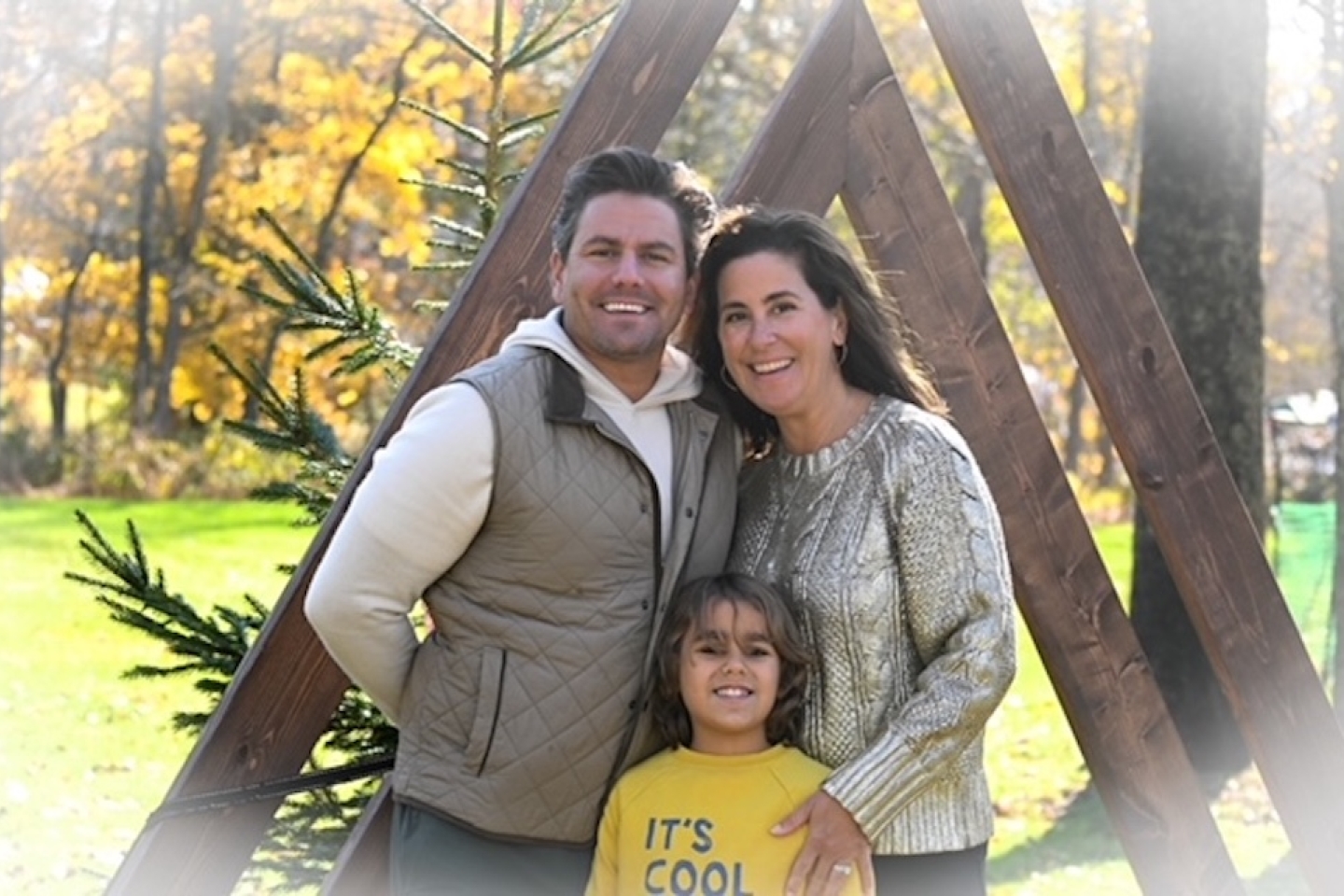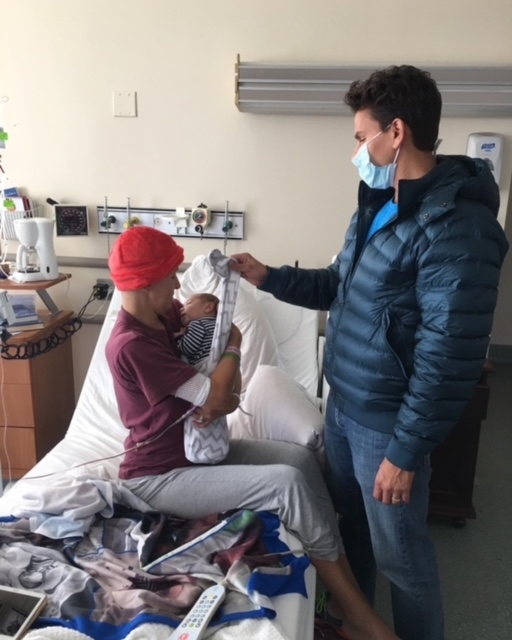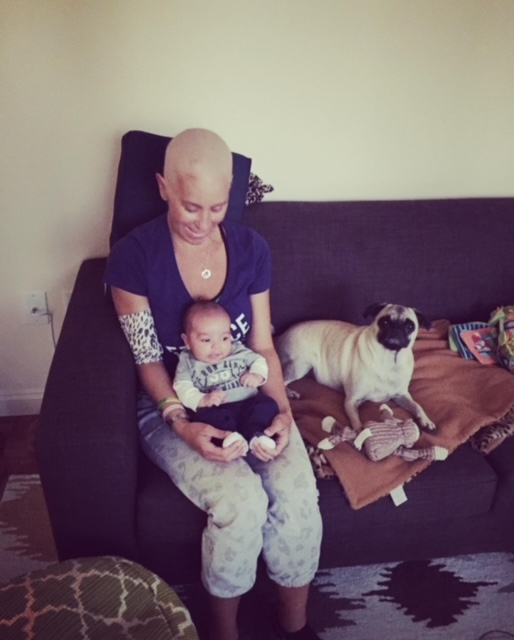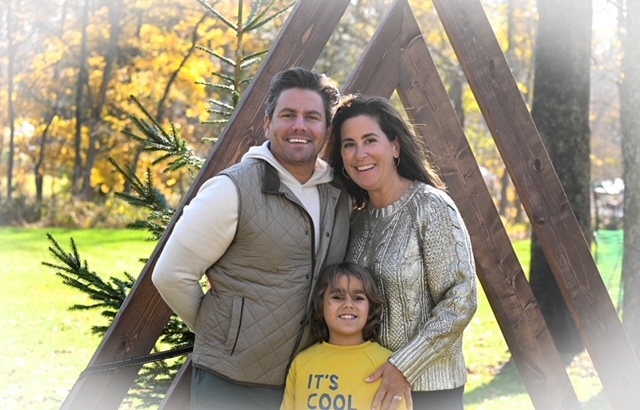
After Laila Hardy-Johnson found out she was pregnant, she did not expect to receive an accompanying diagnosis of leukemia. Though the news came as a shock, Laila had already faced this disease once before, nearly a decade earlier.
At the age of 32, Laila was first diagnosed with leukemia after a routine physical exam. She was swiftly treated at the time with chemotherapy and achieved a remission.
When Laila was trying to get pregnant nine years later, she was initially told that it would be nearly impossible given her age and prior leukemia treatment. Yet, news soon came that she had defied these odds, followed shortly thereafter by news that her miracle pregnancy was also accompanied by difficult bloodwork results. Not only was her child deemed as high-risk for Down Syndrome, Laila also once again had leukemia.
Her original oncologist was unable to treat Laila for her cancer while pregnant and helped her search for someone who could. Some doctors advised Laila to terminate her pregnancy due to the potential complications to both herself and her unborn baby, but Laila was determined to seek out other opinions.
“This was a really overwhelming time in my life,” Laila recalled. “But after meeting with multiple doctors at different hospitals, I was confident that under the care of Dr. Ellen Ritchie and the Weill Cornell Medicine team, I would have the best options available to both optimize my chances of preserving the pregnancy and undergoing leukemia treatment.”
Dr. Ellen Ritchie, Assistant Director of the Weill Cornell Medicine Leukemia Program, assembled a multidisciplinary team to tackle care from all angles, including close collaboration with experts in obstetrics and bone marrow transplant. “By individualizing Laila’s treatment plan to account for her ongoing pregnancy and thinking outside the box, we were able to design an approach with specialized chemotherapy without harming the baby,” said Dr. Ritchie. “Early on in treatment, we determined that the best option to achieve a deep remission and potentially cure Laila of her leukemia would be through a bone marrow transplant (BMT) procedure after the baby’s birth.”

Laila holding her son after her transplant.
While undergoing treatment for her leukemia, Laila gave birth to a perfectly healthy baby boy named Luke.
Almost immediately following labor and delivery, Laila was sent to prepare for the transplant.
Dr. Tsiporah Shore, the Associate Director of the Weill Cornell Medicine Bone Marrow Transplant and Cellular Therapy Program, performed a double cord-blood transplant, an innovative procedure using stem cells from two different partially matched cord blood donations.

Laila and her son at home post-transplant.
“This approach was the fastest way to find compatible stem cells that Laila’s body was least likely to reject,” Dr. Shore shared. “We wanted to ensure that Laila was able to see her newborn despite her weakened and susceptible immune system and made accommodations to support her in her role as a new mother including finding safe ways for her husband and child to visit. Her situation was unique and as such, we had to find unique ways to care for her – medically and emotionally.”
The transplant procedure went smoothly. Laila worked toward adjusting to her new role as a mother and regaining her strength. “On top of the weakness and fatigue I was experiencing, it was an emotional process to not immediately be able to be the mom I wanted to be,” Laila recalled. “But the idea that I was lucky to be alive was never lost on me. Luke and getting another chance at life kept me going even during the difficult days.”
Now nearly nine years post-transplant, Laila remains in remission and resumed her career as a health coach and personal trainer, while also embracing the highs and lows that accompany parenting.

Laila, her husband, and her son, Luke in present day.
“Hearing stories of other people’s survival and resilience helped me, and so I wanted to share my story now that I’m on the other side of this journey,” Laila said. “But most importantly, I want my son to know his story. Being treated by brilliant female physicians who were coincidentally also mothers was a powerful experience and helped provide another level of relatability, support, and compassion.”
Laila is further telling her tale in a book that recounts her experiences with leukemia, the emotional journey of treatment, pregnancy, and beyond. “Don’t Look Up the Mountain” is set to be published in 2024.